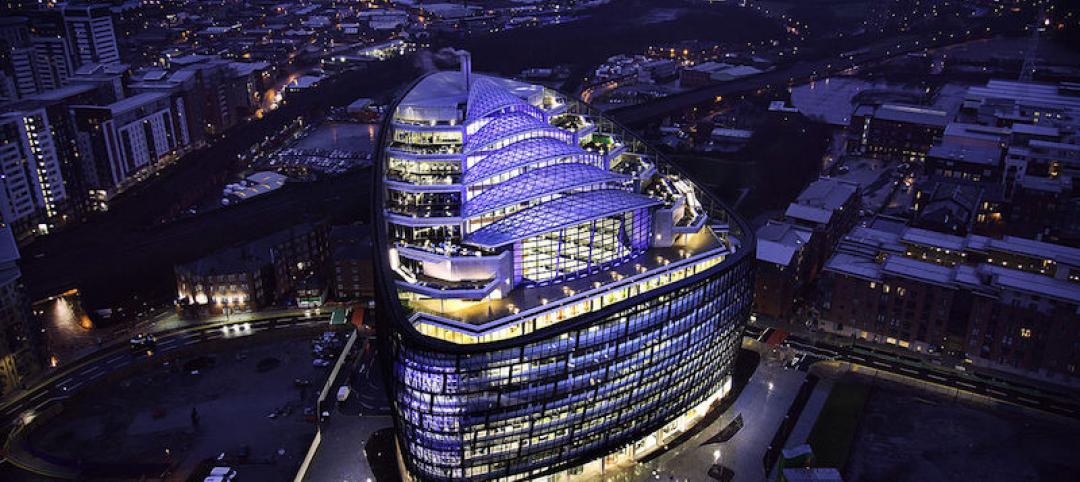Commercial property owners should commit to greenhouse gas (GHG) reduction—a strategy that reaps financial benefits and prevents buildings from becoming stranded assets, according to an energy efficiency consultant writing in GlobeSt.
A systematic drive to reduce emissions across the portfolio will garner savings on energy and water, as well as on levies for exceeding carbon emissions standards enacted by local governments. Decarbonization can avoid “stranded assets … properties that will be exposed to the risk of early economic obsolescence due to climate change because they will not meet future regulatory efficiency standards or market expectations.”
The first step is to set minimum standards for the entire portfolio and efficiency goals for individual properties. Portfolio standards could be performance based (e.g., 10% reduction of all assets by 2030), or prescriptive based (e.g., 100% LED lighting at all assets by 2025).
An energy and water audit, a comprehensive analysis of the property’s energy and water consumption using the ASHRAE Energy Audit Standards, should be conducted at each site. The audit measures energy and water usage, identifies property conditions that may cause excessive use, and provides efficiency measures to improve energy and water efficiency.
Other GHG reduction measures include building automation and controls, retro-commissioning, sourcing green energy from utilities, fully electrifying buildings, and integrating renewable energy systems into the property.
Related Stories
Regulations | Aug 31, 2016
FEMA wants to toughen flood regulation on projects using federal funds
The proposal ‘would essentially rewrite the current 100-year flood standard.’
Sustainability | Aug 30, 2016
New federal project plans must include climate impacts
Agencies must quantify the specific impacts when possible.
Green | Aug 29, 2016
Vancouver, B.C., to require zero emissions on new buildings by 2030
No net GHG emissions will be allowed.
Codes and Standards | Aug 25, 2016
Freddie Mac extends efforts to fund multifamily energy/water efficiency projects
The Multifamily Green Advantage targets existing buildings.
Codes | Aug 24, 2016
Weak building codes no match for recent natural disasters, say industry experts
The recent floods and wildfires in Alberta are being cited as proof.
Legislation | Aug 24, 2016
World Trade Center contractor found guilty of minority-owned business fraud
The company used two minority firms as fronts in a nearly $1 billion scheme.
Codes and Standards | Aug 22, 2016
Federal construction contractors propose reforms to federal project delivery
Industry leaders offer how procurement system could be improved.
Legislation | Aug 19, 2016
California lawmakers may take action to address contractor negligence
An assembly committee heard testimony on deadly balcony collapse that occurred last year.
Energy Efficiency | Aug 17, 2016
Investor Confidence Project aimed at raising trustworthiness on energy efficiency projects
The new initiative screens projects to see if they are investor-ready.
Standards | Aug 17, 2016
U.K.’S BREEAM green building standard enters U.S. market
The standard is touted as a cost-effective alternative to LEED.















